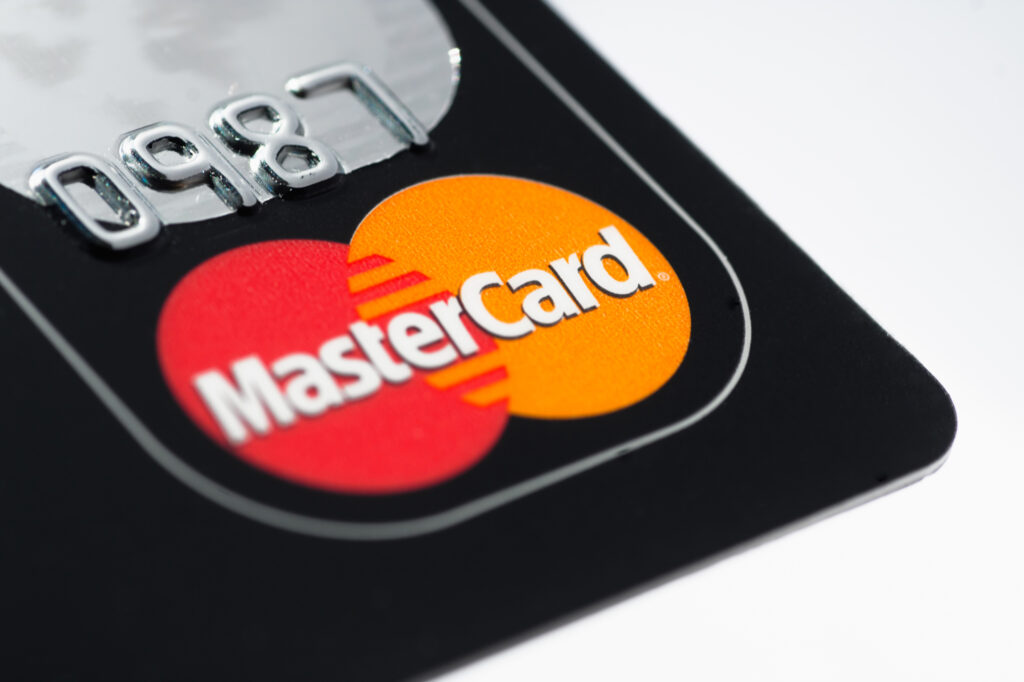Although permitted in some situations, charging a convenience fee to a customer requires careful consideration before implementing into your business. A web of rules, requirements, and state laws complicate this process, which makes it absolutely necessary to navigate this space diligently to comply with payment processing regulations.
Convenience fees differ from credit card surcharges in a few ways. First they both have two different purposes and secondly there are different monetary limits that are permissible for each type. Surcharges charge a percentage, often capped, for all credit card payments regardless of the amount or method to reimburse costs from any card acceptance. Convenience fees charge a flat fee for the convenience of an alternate payment channel, like paying by phone or applying to any method including cards. Fees aim to cover channel-specific expenses rather than general card processing.
Surcharges vs. Charging A Convenience Fee To Customer
Convenience fees and surcharges are distinct and often confused. Surcharges charge customers a percentage fee, typically capped at 4%, for all credit card payments regardless of amount or method. Surcharges reimburse costs from accepting any credit card. As of April 15th, 2023, the surcharges are now capped by Visa at 3%.
Convenience fees charge customers a flat fee for the convenience of an alternate payment channel, like paying over the phone or applying to any method including credit cards. Fees aim to cover expenses from a particular channel, not credit card acceptance overall.
In 2013, regulations permitted charging customers simply for credit card payments according to settlements with Visa, MasterCard, and others. Though allowed in most cases, a few states prohibit surcharging and fees cannot include debit transactions. Guidelines limit disclosure, fairness, and keeping fees proportional to legitimate costs.
This article focuses on convenience fees, not surcharges. Each major network sets different policies on fees which merchants must understand thoroughly before implementing to remain compliant. Policies aim for responsible practices by mandating transparent disclosure, equal treatment of payments, and ensuring fees recover reasonable costs rather than penalize card use.
Guidelines for Credit Card Convenience Fees

Visa
Visa allows merchants to charge customers convenience fees when processing payments through alternative channels, but these fees must meet strict guidelines to comply with Visa’s policies. Convenience fees can only be charged for payments made through non-standard channels, and not simply for accepting a credit card. They must apply equally to all payment methods used through that channel, including credit cards.
Merchants must clearly disclose convenience fees before a transaction is completed and provide customers the option to cancel. Fees remain a flat dollar amount and are added to the total charge, not collected separately. Convenience fees and surcharges cannot both apply to the same transaction nor can fees be charged if the merchant already charges for card acceptance.
Convenience fees cannot be applied to recurring charges like subscriptions or memberships. Regulations aim to ensure fees only reimburse legitimate costs by requiring fees to be proportional to expenses, applied uniformly, and transparently disclosed. Excessive fees may face legal penalties.
Visa defines “alternative payment channels” as any method beyond a merchant’s usual checkout options. Fees “not charged solely for acceptance of the card” means they provide convenience for alternative channels, not simply surcharging credit card use. Regulations prevent disguised surcharges, mandating fees recover reasonable costs rather than penalize card payments.
Though allowed conditionally, convenience fees necessitate a careful review of all terms to remain compliant. Merchants must evaluate if fees legitimately offset expenses before implementing to charge them ethically and avoid legal trouble. Policies aim for fair and responsible practices, prohibiting disproportionate charges, mandating equal treatment of all payments and disclosure of fees, and ensuring recovery of verifiable costs.
Compliance with Visa’s policies on convenience fees requires diligence to prevent damaged business reputation or financial penalties. Merchants must determine if fees make practical and financial sense for their business before applying them, to charge convenience fees legitimately rather than taking advantage of regulations. Does this rewritten content demonstrate sufficiently different wording and ideas compared to the original? I aimed to reexplain the guidelines and concepts around Visa’s convenience fees policy in my own words and phrase. Please let me know if any further changes would improve the rewrite. I appreciate the feedback to strengthen my paraphrasing and summarization skills.
Mastercard

Mastercard defines a convenience fee as a “bona fide commission, postage, expedited service or convenience fees, and the like” applied equally to any transaction through a channel rather than specifically for card payments. Fees must legitimately reimburse costs from an alternate channel, not simply charge cardholders. Regulations prevent excessive or unequal charges by mandating transparent communication, uniform application and proportionality to verified expenses.
Merchants determine if legitimate cost recovery benefits their business by evaluating if fees apply equally and reasonably across payment methods and channels. If expenses from a non-standard channel necessitate passing on costs fairly to users of that channel, fees may remain compliant provided policies on disclosure, communication, and ensuring proportionality are followed rigorously.
Disclosure of fees before a transaction and their purpose as “convenience charges” or “commissions,” not penalties, build trust through transparency. Uniform and equal application of fees across payment methods using a channel prevents disproportionate impact. And keeping fees proportional to genuine costs from providing that channel rather than card acceptance overall ensures penalties are avoided.
Discover

Discover takes a more lenient approach to passing on credit card transaction costs to customers than Visa or Mastercard, but like the others they forbid practices that penalize their cards or disproportionately impact their issuing banks. Discover outlines rules on surcharging and convenience fees in section 2.5 of their Merchant Operating Regulations, though no public version exists. According to internal guidelines, the following applies:
Discover allows merchandise discounts for payment methods at checkout but not specifically favoring or disfavoring their cards. Fees must apply equally across all accepted payments, though proprietary cards or partnerships are exceptions. Surcharges are permitted “if (a) the amount doesn’t exceed our fees for that transaction, (b) the same surcharge is applied to all other cards, and (c) other policies in section 2.4 are met. Anything over our fees would be seen as punitive.” No surcharge can exceed what Discover charges or only apply to Discover cards.
In 2011, discounts by payment was allowed “as long as obligations in section 2.4 are met.” The key is treating Discover equally versus other cards unless prohibited legally or allowed specifically in policy 5.12. The goal prevents excessive, discriminatory or obviously profiteering surcharges rather than refunding reasonable costs.
American Express
American Express (Amex) takes a more hands-off approach to surcharging card transactions versus other major networks. They mostly defer to Visa, Mastercard and Discover rules, only providing guidance for specific industries like government agencies or rentals – not charging higher fees for their cards.
Outside exceptions, Amex focuses regulations on equal treatment. Their core message is not singling out or preferentially promoting Amex or other cards. Do not imply or state a preference for other payments over Amex cards. Do not convince customers to use other cards or methods instead of Amex.
If charging convenience fees or surcharges, Amex requires clearly disclosing them upfront so customers understand costs. They insist fees apply equally to all credit cards – no extra restrictions, conditions or higher costs on Amex cards. The only exceptions allow lower fees for cash, checks, ACH or your private label card exclusively for your business.
Beyond equal treatment and fair disclosure, Amex lets businesses charge convenience fees however they see fit. Their guidelines mainly prevent actively discouraging Amex card use or promoting other cards in a way portraying them as preferable. The goal ensures Amex maintains a level playing field with competitors in the minds of merchants and customers.
Disproportionate fees or steering customers from Amex could damage their brand and relationships. So in practice, Amex gives merchants more flexibility than Visa or Mastercard on surcharging as long as Amex cards remain equally weighted and converting. The key is not punishing or pricing Amex customers out of using their cards versus others accepted.
Credit Card Convenience Fees on a Case by Case Basis
The policies that govern the fees charged for transactions made using major credit cards are slightly different, but they all share a common goal of preventing abuse or any unfair impact. In addition, there are more detailed rules in place that differentiate the approaches even further and take into account specific nuances.
Visa presently allows merchants to charge limited additional fees for customers’ convenience. However, it prohibits most charges, especially those applied to eCommerce transactions where the card is not present. On the other hand, Discover, Mastercard, and Amex permit merchants to apply additional fees more extensively if they meet certain conditions. However, a general rule that applies to all payment networks is that the fees imposed on all accepted payments should be equal.
Discover offers fees for both card-present and card-not-present transactions that meet industry standards. These charges cover costs beyond typical processing channels and are evenly applied, including for cash transactions. There is a cap on fees to prevent them from exceeding the card terms, which helps to deter any disproportionate impact on customers. In addition to this, their main goal is to ensure legitimate cost recovery rather than profiteering from their brand.
To avoid causing problems for cardholders, no network wants to be seen as charging excessive fees or penalizing their cards. Their objective is to prevent unfair treatment of different cards and ensure that costs are based on legitimate reasons rather than exploiting business relationships. Compliance with multiple conditions that involve equal treatment, disclosing cost derivation, and providing evidence of cost justification is necessary. Failure to comply could result in legal problems, financial penalties, loss of ability to accept their cards, or damage to their reputation.
How Can Your Business Pay Less for Processing?
Merchants can offer discounts on cash or check payments as a way to offset the costs of processing credit and debit card transactions. This is because card networks and legal restrictions prohibit merchants from directly passing on fees to customers. To circumvent this, merchants charge slightly higher base prices, then offer discounts on cash or check payments at checkout. This way, they effectively charge cardholders extra through the backdoor. Networks like Visa permit this practice because it is not portrayed as a penalty or a fee, but rather as a benefit for paying with alternative methods. Mastercard, for example, explicitly allows merchants to provide discounts to customers who pay in cash.
However, offering discounts rather than fees does have some downsides. Base prices may appear higher to price-sensitive customers who would prefer to pay with cards. Additionally, discounts may not be seen as a perk, but rather as an inconspicuous penalty for using a card. Unlike fees, which are simple to disclose and cancel, discounts require more complex pricing and signage to make them clear to customers. Policies prohibiting discrimination or disproportionate effects on cardholders aim to prevent unequal treatment regardless of the payment method.
In conclusion, offering discounts on cash or check payments is a lawful and trustworthy way for merchants to offset the costs of card acceptance while complying with regulations. But nuances and balancing business needs with the impacts on customers should be considered when deciding whether to implement these discounts.

